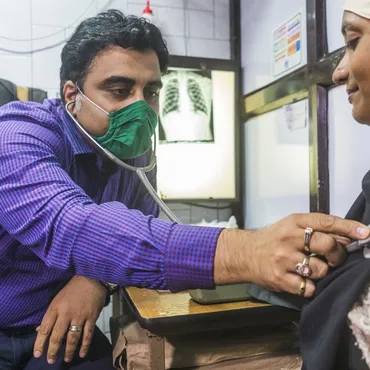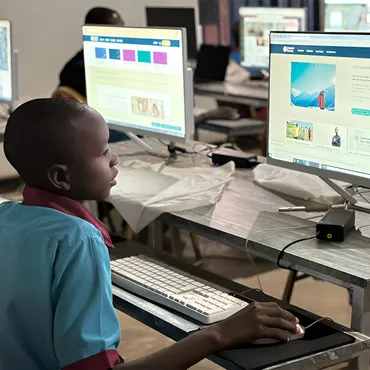A Digital Lifeline to Parents During Lockdown
A comprehensive PPC and paid social strategy effectively guides over 196,000 users to crucial support services, underlining the power of targeted digital marketing in crucial times.

Action for Children

The outcomes
- 196K People accessed support
- 3m Display ad impressions
- 18K Spotify ad listens
The background
Spreading the word of Parent Talk
Action for Children supports vulnerable children, young people and their families across the UK.
Like many nonprofits, Action for Children was significantly impacted by the coronavirus pandemic. The trend for digital face-to-face services had already been growing at the charity, but world events greatly accelerated this shift. Action for Children responded to an increase in demand from service users at such a rapid and impressive speed that their support and advice content, as well as their confidential 1-2-1 chat service, Parent Talk, was scaled up in just a few weeks. We were tasked with responding equally as rapidly, with a programme of digital marketing activity aimed at ensuring people knew about—and engaged with—these new services via digital channels.
The aim
Providing support to parents
In the face of an unprecedented global pandemic, Action for Children had to reach parents at a time when they needed support with a range of complex new parenting issues, including homeschooling, explaining COVID-19, and maintaining emotional wellbeing during lockdown. Reaching these parents was measured against three aims:
- Raising awareness: we needed to make parents aware that Action for Children exists, and providing relevant support for parents.
- Promoting information and advice content: we had to ensure parents were finding answers to their questions and concerns around parenting.
- Getting parents talking: we wanted to encourage parents to use the Parent Talk online one-to-one chat service.
To achieve these aims, we ran marketing activity across paid search (Google and Microsoft Bing), the Display network, Spotify and paid social media channels.
Our approach
Targeted strategies for support and awareness
Using insights from the team at Action for Children, and existing keyword data we had available from within the charity’s Google Ads account, we identified a series of questions and concerns parents were posing. This included everything from support with the general stresses of being a parent, through to child behaviour issues, co-parenting concerns and the mental health of children during lockdown. We used this data to build our paid search campaigns on Google Ads and Microsoft Bing ads.
We mapped these queries to relevant information and advice on the site to ensure users were served relevant content. Where there wasn’t a natural fit with content, we directed parents to the one-to-one Parent Talk online chat tool. Over the course of lockdown, we mined Google Ads’ search terms report, and information gained from the charity’s conversations with parents, to iterate on our keyword list as parenting queries evolved.

Action for Children PPC Ad
National and regional refinements
Our activity was split into national and regional campaigns. Action for Children were working with local commissioners across the UK; as such, we supported a centralised national campaign with five regional campaigns, tailored to a local level. We tested different keywords, ad copy and bidding strategies (eCPC, maximise conversions and target CPA) and tailored budgets depending on the performance of each region.
A level of awareness
Alongside this always-on activity, we also ran an awareness campaign on Facebook, Instagram, Twitter, Google Search and Display, and Spotify. Each platform offered us a subtly different way of talking to parents through each platform’s different targeting options.
On Facebook and Instagram, we targeted parents through interest-based targeting and retargeted users who had visited the parenting pages but had not used the chat tool. Twitter targeting focused on handle-targeting mum-influencers who Action for Children were working with or had identified as relevant, along with targeting people using specific parenting keywords in their tweets.
Spotify allowed us to build on the relationships Action for Children had with key parent celebrities, as well as the two coveted spots the charity had on ITV’s This Morning. We advised on the audio script that the celebrities Dr Ranj and Angellica Bell would go on to record, and we used data to define our ads’ CTA. One limitation of Spotify, as with direct response television advertising (DRTV), is its difficulty tracking the impact of ads and whether someone took an action as a result of simply hearing an ad. So we advised on a suitable search term as our call-to-action. We identified low CPC keywords that others wouldn’t be bidding on, settling on the CTA “To find out more, search for Parent Talk”—perfect because it was also the name of the online chat service. We supported our audio campaign by bidding on specific PPC terms to ensure users who searched after hearing an audio ad were shown highly tailored ads. This allowed us to effectively track users who had listened to a Spotify ad or watched This Morning and then searched.
Running creative tests
For Display, we used Google’s Display Network interest targeting to show ads to parents on relevant parenting websites as they browsed. We ran creative A/B testing to monitor the difference in performance between responsive display ads (where you upload multiple assets and Google Ads creates and tests different variations) and static display ads. Our creative focused solely on raising the awareness of the 1-2-1 chat service.

Google Display Network Ads
The results
A successful campaign
- Our paid search campaigns enabled over 196,000 users to access the service.
- Our Display ads were served over 3 million times, accounting for almost 40% of all sessions to the site, at a cost of just £0.04 a click. The responsive display ads delivered 89% of all clicks to the site.
- Facebook generated over 11,000 landing page views and encouraged 184 parents to start a conversation on the chat tool.
- Our Spotify ads were heard just under 18,000 times, costing just £0.01 per unique listen. The Parent Talk PPC keywords we ran alongside Spotify encouraged almost 100 parents to start a conversation.



